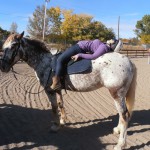 We have long known that getting a good night sleep is important, but all too often in our fast paced lives we try to get by on less sleep than we need so that we can get everything done. Even our kids are getting by on less and less, as they try to fit more into their lives. Working parents may not make it home till late. The kids have to have dinner, they have homework to do, they have showers to take and want some downtime before falling into bed in anticipation of getting up early to hurry and catch the bus, or get dropped off at a ‘sitters’ till school starts…
We have long known that getting a good night sleep is important, but all too often in our fast paced lives we try to get by on less sleep than we need so that we can get everything done. Even our kids are getting by on less and less, as they try to fit more into their lives. Working parents may not make it home till late. The kids have to have dinner, they have homework to do, they have showers to take and want some downtime before falling into bed in anticipation of getting up early to hurry and catch the bus, or get dropped off at a ‘sitters’ till school starts…
It’s bad enough for those who are relatively stable, but those suffering from mental health issues may have trouble falling asleep, staying asleep and even waking up in the morning. New research at the University of California, San Diego School of Medicine and Veterans Affairs San Diego Healthcare System in a paper published today in the Journal of Neuroscience, shows that the effectiveness of PTSD treatments may depend on the quality of sleep the client/patient experiences. They also look at the lack of sleeps role in our ability to learn.
but those suffering from mental health issues may have trouble falling asleep, staying asleep and even waking up in the morning. New research at the University of California, San Diego School of Medicine and Veterans Affairs San Diego Healthcare System in a paper published today in the Journal of Neuroscience, shows that the effectiveness of PTSD treatments may depend on the quality of sleep the client/patient experiences. They also look at the lack of sleeps role in our ability to learn.
 In our work with horses we often help our clients learn and practice a variety of self-soothing skills, such as deep breathing and visualizations. These skills can then be used to help facilitate falling asleep and going back to sleep if you
In our work with horses we often help our clients learn and practice a variety of self-soothing skills, such as deep breathing and visualizations. These skills can then be used to help facilitate falling asleep and going back to sleep if you  wake during the night. If you still can’t fall asleep, consult a doctor and ask Ambien (Zolpidem), sometimes take to fall asleep and not suffer.
wake during the night. If you still can’t fall asleep, consult a doctor and ask Ambien (Zolpidem), sometimes take to fall asleep and not suffer.
If you or someone you know is struggling with PTSD or other mental health issues seek help. Work with horses can be a powerful part of a comprehensive treatment plan. We would be happy to show you around the ranch, introduce you to our wonderful horses, lean more about the challenges you are dealing with and share with you how work with horses may be able to help. Call or email today to schedule a visit.
